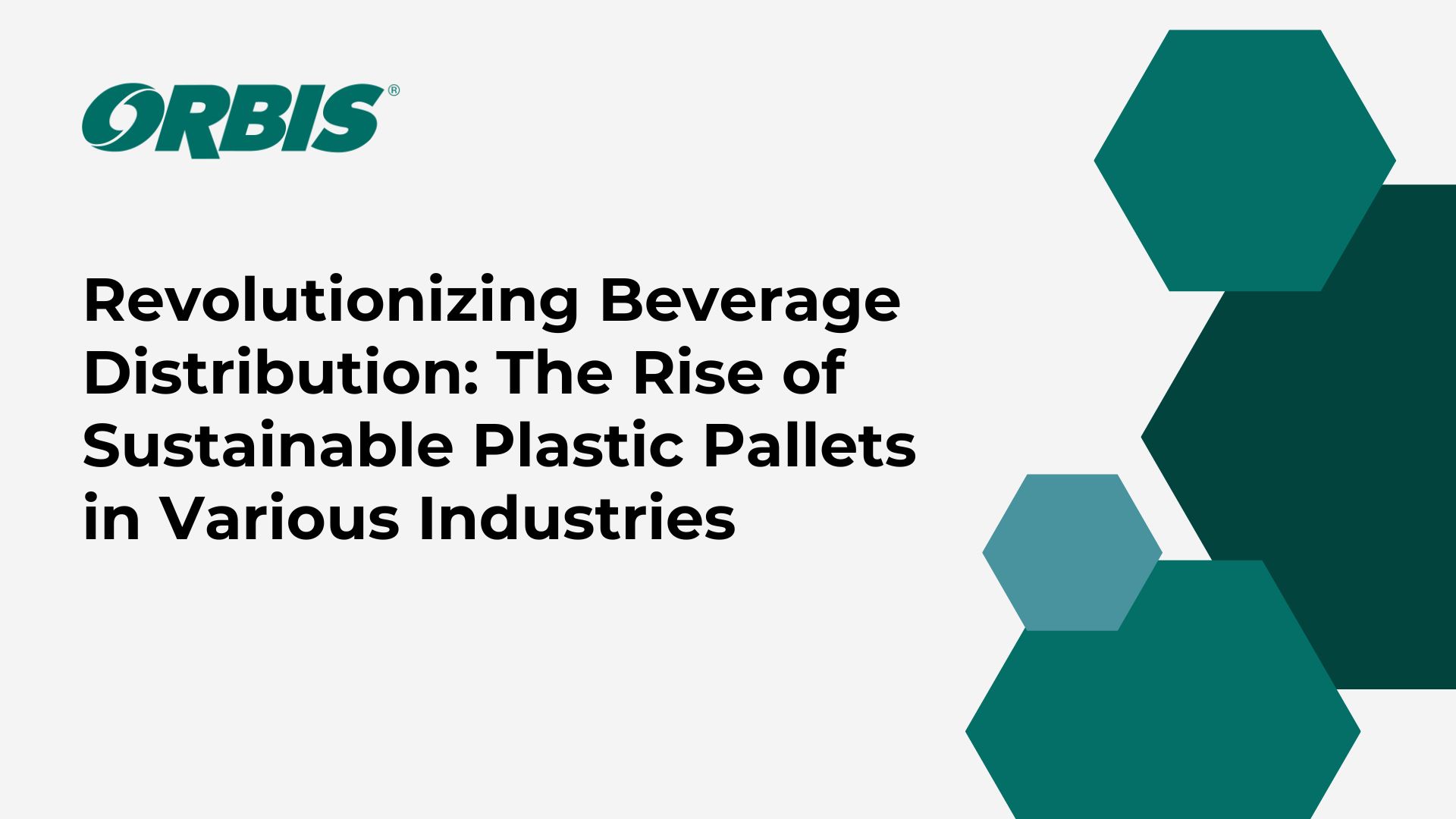Companies across practically every industry have been looking for ways to enhance the sustainability of their practices to conform with environmental, social, and governance (ESG) standards. The beverage distribution industry is no exception.
Many beverage distributors have begun switching from wood to plastic pallets for sustainability and cost purposes. Learn how plastic pallets are revolutionizing beverage distribution and have become an emerging solution in other industries as well.
What Are Plastic Pallets?
Pallets of any material are essential in the supply chain. They protect cargo, such as beverages, during shipping and allow workers to load and unload products from trucks in bulk, saving time.
Like many industries, the beverage industry has primarily used wood pallets for decades. But as companies like PepsiCo and Coca-Cola continue producing new beverages and consumers’ sweetened beverage intake remains heightened, wood pallets are no longer the best fit.
Plastic pallets present a sustainable and efficient alternative for beverage distribution. Some ORBIS pallets are reusable for up to 280 use cycles, surpassing the typical 11 use cycles for wooden pallets. Plastic pallets are highly durable and well suited for fast-paced, expanding beverage operations.
Why Are Beverage Distributors Switching to Plastic Pallets?
Beverage distributors need pallets that support many use cycles, resist pests and bacteria, and are the right shape and size to fit their cases of beverages. Plastic pallets check all of these criteria, offering the following benefits:
Circular Economy vs. Linear Economy
For decades, beverage distributors and other businesses have adopted a linear economy approach toward packaging and delivering goods.
Wood pallets are reusable only for a few jobs, or cycles. Then, companies discard them, turning them into wood chips or selling them to pallet disposal programs. Millions of old pallets end up in landfills every year.
In contrast, plastic pallets create a circular economy. Beverage distributors can rely on these pallets for hundreds of uses, keeping the same pallets in circulation much longer.
When the pallets reach the ends of their lives, companies can return them to the distributor, who will turn them into more packaging products.
While wood pallets are recyclable to an extent, many companies go through so many wood pallets daily that they don’t have the processes in place to recycle them. Because plastic pallets last longer, many companies can better manage the recycling system when they reach the ends of their lifespans.
Durability and Longevity
Plastic pallets last for hundreds of cycles and have an average lifespan of over 10 years. While wood pallets start deteriorating after one use, plastic pallets are much more durable, allowing for greater efficiency in beverage sales and distribution.
Additionally, plastic pallets are easily repairable. Warehouses can replace small sections that have endured damage rather than needing to recycle the entire unit.
Because plastic pallets last much longer than wood pallets, they are typically more affordable for beverage brands and other industries. The cost-per-use is lower when brands can store and reuse their pallets hundreds of times rather than just 10 or 11 times.
Hygiene
Beverage brands need pallets and distribution materials that meet strict hygiene standards. While wood pallets are often susceptible to moisture, mold, rot, decay, and pests, plastic pallets are non-porous and bacteria-resistant.
Plastic is also much easier to clean than wood. Distributors can quickly clean and sanitize the pallets after unloading the beverages, allowing for greater control over hygiene.
Those who have worked in the beverage supply chain for a while understand the annoyance of handling splintered wood pallets. Plastic pallets don’t have any risk of splintering, promoting a safer and cleaner work environment.
Flexible Styles and Configurations
Many beverage brands have found success with plastic pallets due to their flexible configurations and customizable styles. Instead of using a one-size-fits-all wood pallet that doesn’t accommodate all types of beverages and packages, companies can choose from plastic pallets in a range of styles, such as:
- Nestable
- Stackable
- Rackable
Plastic pallet manufacturers can precisely mold these pallets to suit a company’s needs, allowing for even greater efficiency.
The Rise of Plastic Pallets in Other Industries
Beverage distribution isn’t the only industry to incorporate plastic pallets into its supply chain. Many other industries have also found success using plastic pallets in their business models, such as:
- Automotive brands
- Retail
- Food industries
- Pharmaceutical suppliers and distributors
- Health companies
ORBIS Corporation: Your Plastic Pallet Partner
If your company is interested in switching to plastic pallets in logistics, ORBIS Corporation is your go-to partner.
Our innovative plastic pallets, top frames, and other reusable packaging solutions offer sustainable and cost-effective support for a wide range of brands, including beverage distribution. We’re committed to quality and sustainability and have received numerous awards in recognition of our efforts.
